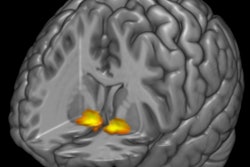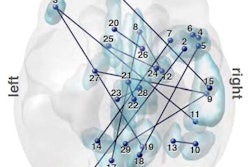Functional MRI (fMRI) has identified distinctive brain differences in children who have a family history of depression and are at high risk for developing the condition.
The findings from Massachusetts Institute of Technology (MIT) and Harvard University could help identify at-risk children for early treatment before the condition occurs.
The study, published online December 16, 2015, in Biological Psychiatry, included 27 high-risk children, ranging in age from 8 to 14 years. These subjects were compared with a group of 16 children who had no known family history of depression.
Lead author Xiaoqian Chai, PhD, and colleagues measured synchronization of activity between different brain regions using fMRI. Among other patterns, they found a strong link between the brain's subgenual anterior cingulate cortex and the default mode network, which is most active when the mind is not focused. This abnormally high synchronization has also been seen in the brains of depressed adults.
The group is tracking the children and plans to investigate whether early treatment might prevent episodes of depression, as well as how some high-risk children are able to avoid the disorder without treatment.



















